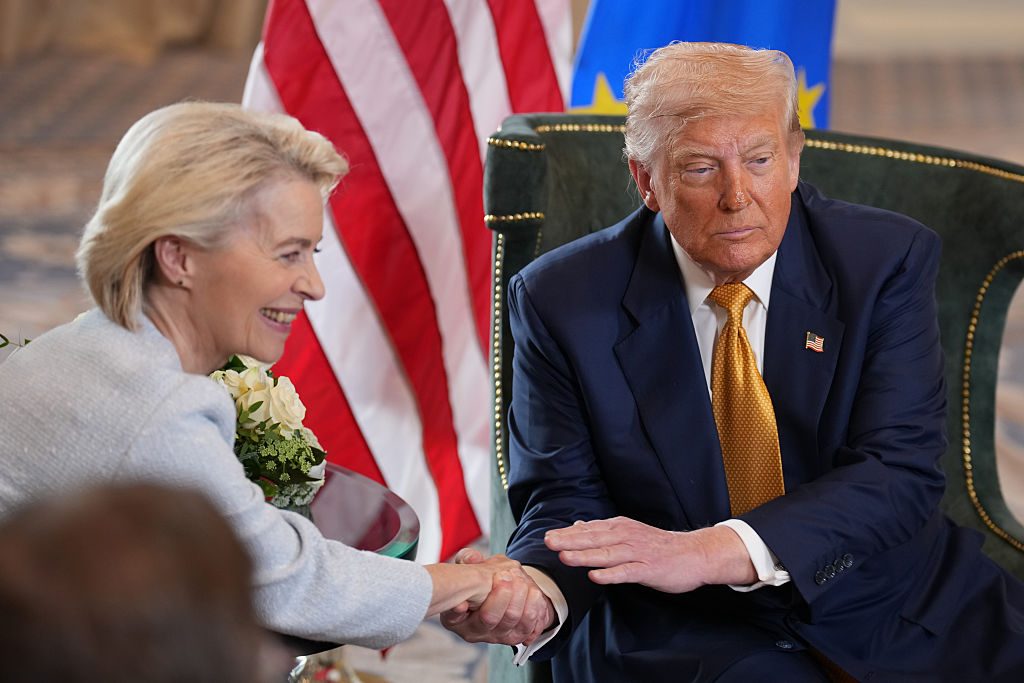Ursula von der Leyen has helped Europe avoid economic catastrophe — all while doubling down on the continent’s losing bet on America’s security blanket.
Although the tariff deal she struck late on Sunday with Donald Trump — which includes a maximum US tariff of 15% across several import categories, rather than the 30% he had previously threatened — was initially hailed as a win for Europe, dissent has steadily grown since. French Prime Minister François Bayrou called the agreement an act of “submission” to the US, while Hungarian PM and Trump ally Viktor Orbán said the American President had eaten von der Leyen “for breakfast”.
The deal certainly includes several major positives for Europe geopolitically. Besides averting a transatlantic trade war, it also incentivizes European companies to spend big on American energy, opening the door for a desperately needed infusion of liquefied natural gas to replace Russian energy. Militarily, it promises years of weapons sales to the EU, accelerating the arms transfer program Trump approved this month.
Ultimately, the fact that avoiding a worst-case scenario qualifies as a victory for von der Leyen tells us much about the state to which Europe has been reduced.
It’s no secret that Trump’s tariff strategy has always been about coercion. But because Europe is at America’s mercy militarily as well as economically, the tariffs have come to appear less as a demand for hard negotiations and more like an outright ultimatum. The continent cannot hide that it is now wholly dependent on America’s ever-shifting, capricious military umbrella — even though the conditions of its existence have grown more demanding by the month.
Europeans certainly see the link between this latest deal and the continent’s security, and it is no accident that the agreement includes stipulations about significant European investment in American military hardware. Despite appearances, the trade deal is part of a pattern that started at the Nato summit in June, where Europe committed to increasing defense spending to 5% of GDP, and continued with Trump’s decision to transfer weapons to Ukraine this month via European Nato states.
Both of these moments contained nuggets of opportunity for European states, and ultimately led to outcomes that served some of their short-term goals. But in securing these minor wins, they have surrendered the very thing Europe needs to truly thrive in the emerging historical period in which it finds itself: strategic autonomy. And now, however magnanimous Trump’s move to rearm Ukraine may have seemed a few weeks ago, this tariff deal shows that it did not come without heavy strings attached — ones that have now forced Europe to bear the US President’s insult with a smile, with the knowledge that it truly has no other choice.
In a best-case scenario, Sunday’s tariff deal will be enough to satisfy Trump. At worst, however, it will prove to him that Europe remains a malleable plaything for the US, and that debates about future American security support will present fresh opportunities for further extraction. After all, why stop now when Europe has made it clear he has nothing to lose from pushing onward?











Join the discussion
Join like minded readers that support our journalism by becoming a paid subscriber
To join the discussion in the comments, become a paid subscriber.
Join like minded readers that support our journalism, read unlimited articles and enjoy other subscriber-only benefits.
Subscribe